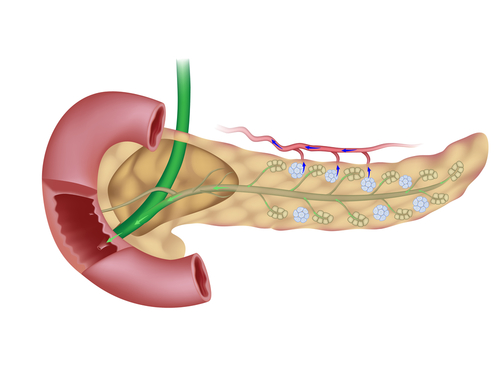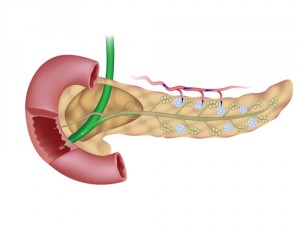Pancreatic Enzyme Products May Benefit Cystic Fibrosis Patients with Malabsorption

 After the Food and Drug Administration (FDA) issued rules requiring approval of pancreatic enzyme products (PEPs) in 2004, the cost and availability of the products added another hardship to the lives of cystic fibrosis patients, some of whom use PEPs to prevent uncomfortable and dangerous side effects from malabsorption of food.
After the Food and Drug Administration (FDA) issued rules requiring approval of pancreatic enzyme products (PEPs) in 2004, the cost and availability of the products added another hardship to the lives of cystic fibrosis patients, some of whom use PEPs to prevent uncomfortable and dangerous side effects from malabsorption of food.
Only a handful of PEPs have since been approved by the FDA, with the first in 2009. Aptalis Pharma has actively pursued clinical studies to further approve two of its pancrelipase products, Zenpep (APT-1008) and Ultrase MT 20, for patients with cystic fibrosis. Both PEPs are delayed-release capsules, and the results of Aptalis’ Phase 3 clinical trials were released earlier in 2014.
Ultrase MT 20 is a concoction of lipase, amylase, and protease in higher amounts than those found in Aptalis’ Ultrase MT 12 and 18 capsules. During the trial, a total of 31 cystic fibrosis patients with exocrine pancreatic insufficiency entered the first of two intervention periods, and 26 completed the the second intervention period. Participants were randomized to receive Ultrase MT 20 or placebo for six to seven days, then instructed to use the alternate treatment (placebo or Ultrase MT 20) for six to seven days after a four-day stabilization period.
The primary outcome measure for the study was percent coefficient of fat absorption (CFA). Patients receiving MT 20 had a significantly higher coefficient (88.55% CFA) than patients receiving placebo (55.61% CFA). In the secondary outcome measures, Ultrase MT 20 significantly enhanced percent coefficient of nitrogen absorption.
Zenpep, one of the first PEPs approved by the FDA, was evaluated in an open-label trial with 19 cystic fibrosis patients with exocrine pancreatic insufficiency. All patients completed the trial, which consisted of a four-day screening period, a seven-day dose stabilization period, and a seven-day treatment period.
[adrotate group=”1″]
After one week, 68.4% of the children responded to treatment, with responders defined as those who had less than 30% fat content in their stool and showed no signs of malabsorption. After two weeks, 57.9% of patients were responders.
The results of these studies show that although PEPs are less readily available and more expensive than they were previously, they may actually benefit patients with cystic fibrosis.







